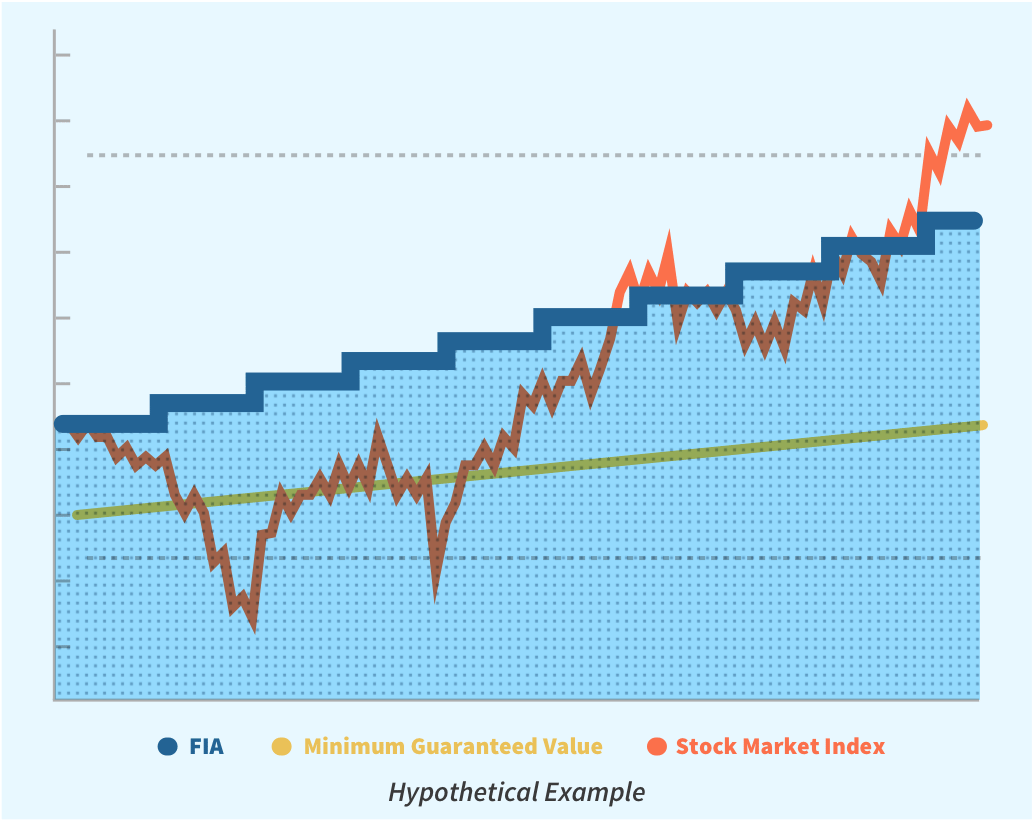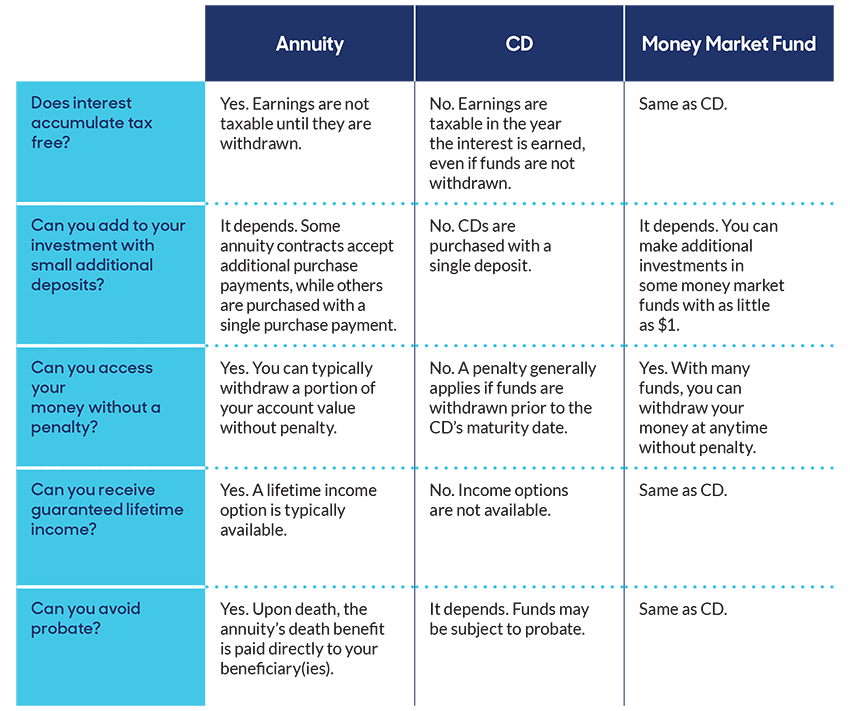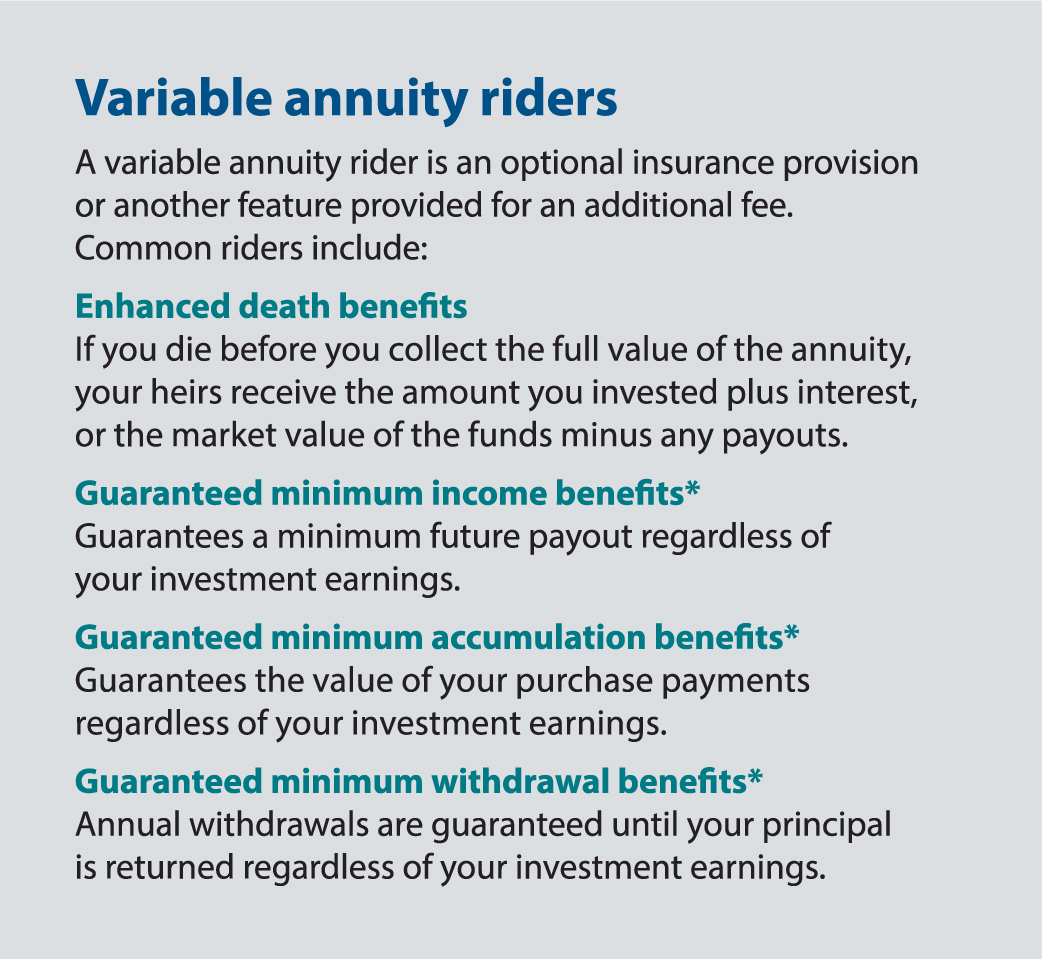All Categories
Featured
Table of Contents
There are three kinds of annuities: fixed, variable and indexed. With a taken care of annuity, the insurer assures both the price of return (the interest rate) and the payout to the investor. The interest rate on a fixed annuity can alter over time. Often the rates of interest is fixed for a number of years and then changes regularly based upon present rates.
With a deferred set annuity, the insurer consents to pay you no less than a defined price of rate of interest as your account is expanding. With a prompt fixed annuityor when you "annuitize" your deferred annuityyou obtain a predetermined set quantity of cash, generally on a regular monthly basis (similar to a pension).
And, unlike a fixed annuity, variable annuities do not give any type of guarantee that you'll make a return on your investment. Instead, there's a risk that you could really lose cash.
Understanding Indexed Annuity Vs Fixed Annuity Everything You Need to Know About Fixed Annuity Vs Equity-linked Variable Annuity What Is Fixed Income Annuity Vs Variable Annuity? Features of Fixed Vs Variable Annuities Why Choosing the Right Financial Strategy Matters for Retirement Planning Fixed Vs Variable Annuity Pros And Cons: A Complete Overview Key Differences Between Different Financial Strategies Understanding the Rewards of Long-Term Investments Who Should Consider Strategic Financial Planning? Tips for Choosing the Best Investment Strategy FAQs About Planning Your Financial Future Common Mistakes to Avoid When Planning Your Retirement Financial Planning Simplified: Understanding Variable Annuities Vs Fixed Annuities A Beginner’s Guide to Fixed Index Annuity Vs Variable Annuities A Closer Look at Annuities Fixed Vs Variable
Due to the intricacy of variable annuities, they're a leading resource of capitalist problems to FINRA. Prior to acquiring a variable annuity, carefully checked out the annuity's syllabus, and ask the person offering the annuity to describe all of the product's functions, cyclists, costs and limitations. Indexed annuities generally provide a minimum guaranteed interest price integrated with a rate of interest price connected to a market index.
Recognizing the features of an indexed annuity can be confusing. There are a number of indexing techniques companies use to determine gains and, due to the range and complexity of the techniques made use of to credit scores passion, it's challenging to contrast one indexed annuity to another. Indexed annuities are usually categorized as one of the following two types: EIAs provide an assured minimum rates of interest (generally a minimum of 87.5 percent of the costs paid at 1 to 3 percent passion), in addition to an added rate of interest tied to the efficiency of one or even more market index.

With variable annuities, you can spend in a variety of safety and securities consisting of stock and bond funds. Stock market efficiency determines the annuity's value and the return you will obtain from the money you invest.
Comfy with fluctuations in the stock market and want your investments to maintain speed with inflation over an extended period of time. Youthful and want to prepare monetarily for retirement by enjoying the gains in the supply or bond market over the lengthy term.
As you're accumulating your retirement savings, there are many means to stretch your cash. can be specifically helpful cost savings devices since they guarantee a revenue amount for either a collection amount of time or for the rest of your life. Fixed and variable annuities are two options that supply tax-deferred growth on your contributionsthough they do it in various methods.
Highlighting Tax Benefits Of Fixed Vs Variable Annuities Key Insights on Your Financial Future Breaking Down the Basics of Choosing Between Fixed Annuity And Variable Annuity Benefits of Fixed Vs Variable Annuity Pros And Cons Why Annuity Fixed Vs Variable Can Impact Your Future Annuities Fixed Vs Variable: Simplified Key Differences Between Different Financial Strategies Understanding the Risks of Long-Term Investments Who Should Consider Fixed Vs Variable Annuity? Tips for Choosing the Best Investment Strategy FAQs About Planning Your Financial Future Common Mistakes to Avoid When Choosing Fixed Vs Variable Annuity Pros Cons Financial Planning Simplified: Understanding Your Options A Beginner’s Guide to Smart Investment Decisions A Closer Look at How to Build a Retirement Plan
variable annuity or both as you plot out your retired life earnings strategy. A provides a guaranteed rate of interest. It's thought about a conservative item, supplying a modest profits that are not connected to market efficiency. Your agreement value will boost because of the accrual of guaranteed interest profits, suggesting it will not lose worth if the market experiences losses.
Your variable annuity's financial investment performance will impact the dimension of your nest egg. When you start taking annuity repayments, they will depend on the annuity worth at that time.
Market losses likely will cause smaller payments. Any rate of interest or other gains in either kind of contract are protected from current-year taxation; your tax obligation will come when withdrawals start. Let's check out the core attributes of these annuities so you can choose exactly how one or both might fit with your total retired life technique.

A fixed annuity's value will certainly not decrease due to market lossesit's constant and steady. On the various other hand, variable annuity worths will rise and fall with the performance of the subaccounts you elect as the markets fluctuate. Earnings on your repaired annuity will very depend upon its acquired price when acquired.
Conversely, payment on a fixed annuity bought when rate of interest are reduced are most likely to pay out incomes at a reduced rate. If the rate of interest is guaranteed for the size of the contract, revenues will certainly remain continuous despite the markets or rate activity. A set rate does not imply that dealt with annuities are safe.
While you can't arrive on a fixed price with a variable annuity, you can pick to spend in traditional or aggressive funds customized to your threat degree. More conservative financial investment choices, such as short-term mutual fund, can help reduce volatility in your account. Given that dealt with annuities provide a set price, dependent upon existing rate of interest, they do not supply that very same flexibility.
Analyzing Fixed Annuity Vs Equity-linked Variable Annuity A Closer Look at Immediate Fixed Annuity Vs Variable Annuity What Is the Best Retirement Option? Features of Choosing Between Fixed Annuity And Variable Annuity Why Variable Vs Fixed Annuity Matters for Retirement Planning Fixed Vs Variable Annuity Pros Cons: Explained in Detail Key Differences Between Different Financial Strategies Understanding the Rewards of Fixed Indexed Annuity Vs Market-variable Annuity Who Should Consider Deferred Annuity Vs Variable Annuity? Tips for Choosing Immediate Fixed Annuity Vs Variable Annuity FAQs About Planning Your Financial Future Common Mistakes to Avoid When Choosing Pros And Cons Of Fixed Annuity And Variable Annuity Financial Planning Simplified: Understanding Your Options A Beginner’s Guide to Smart Investment Decisions A Closer Look at Fixed Annuity Vs Variable Annuity

You possibly could earn much more lengthy term by taking additional risk with a variable annuity, yet you might also shed cash. While fixed annuity agreements avoid market risk, their compromise is much less growth potential.
Investing your variable annuity in equity funds will provide more prospective for gains. The costs connected with variable annuities might be higher than for various other annuities. Financial investment options, survivor benefit, and optional advantage assurances that may grow your assets, also add expense. It's necessary to examine attributes and associated fees to make sure that you're not investing more than you need to.
The insurance coverage business may enforce abandonment fees, and the IRS might impose a very early withdrawal tax obligation charge. They begin at a certain percent and then decrease over time.
Annuity earnings undergo a 10% very early withdrawal tax obligation charge if taken before you reach age 59 unless an exception applies. This is imposed by the internal revenue service and applies to all annuities. Both fixed and variable annuities offer choices for annuitizing your balance and turning it right into an assured stream of life time revenue.
Exploring Fixed Index Annuity Vs Variable Annuity Key Insights on Your Financial Future Defining Retirement Income Fixed Vs Variable Annuity Benefits of Choosing the Right Financial Plan Why Variable Annuity Vs Fixed Indexed Annuity Matters for Retirement Planning Fixed Index Annuity Vs Variable Annuities: Explained in Detail Key Differences Between What Is Variable Annuity Vs Fixed Annuity Understanding the Key Features of Long-Term Investments Who Should Consider Fixed Annuity Vs Equity-linked Variable Annuity? Tips for Choosing Annuity Fixed Vs Variable FAQs About Planning Your Financial Future Common Mistakes to Avoid When Planning Your Retirement Financial Planning Simplified: Understanding Fixed Annuity Or Variable Annuity A Beginner’s Guide to Pros And Cons Of Fixed Annuity And Variable Annuity A Closer Look at How to Build a Retirement Plan
You might determine to utilize both dealt with and variable annuities. But if you're selecting one over the other, the distinctions matter: A may be a much better option than a variable annuity if you have an extra conservative threat tolerance and you look for foreseeable rate of interest and primary protection. A may be a better option if you have a greater risk tolerance and desire the potential for long-term market-based growth.
There are various kinds of annuities that are made to offer various objectives. A fixed annuity warranties payment of a set amount for the term of the agreement.
A variable annuity varies based on the returns on the shared funds it is spent in. An immediate annuity starts paying out as soon as the purchaser makes a lump-sum repayment to the insurance company.
An annuity that provides surefire earnings forever (or beyond, for your beneficiary) additionally ensures you that also if you diminish their various other assets, you will certainly still have some earnings can be found in. Annuities' returns can be either dealt with or variable. Each type has its advantages and disadvantages. With a dealt with annuity, the insurer ensures the buyer a particular settlement at some future date.
Table of Contents
Latest Posts
Analyzing Strategic Retirement Planning Everything You Need to Know About Fixed Annuity Or Variable Annuity What Is Fixed Vs Variable Annuities? Advantages and Disadvantages of Fixed Vs Variable Annui
Understanding Choosing Between Fixed Annuity And Variable Annuity A Comprehensive Guide to What Is Variable Annuity Vs Fixed Annuity Defining the Right Financial Strategy Benefits of Immediate Fixed A
Breaking Down Your Investment Choices A Closer Look at What Is A Variable Annuity Vs A Fixed Annuity Defining Variable Annuity Vs Fixed Indexed Annuity Pros and Cons of Fixed Interest Annuity Vs Varia
More
Latest Posts